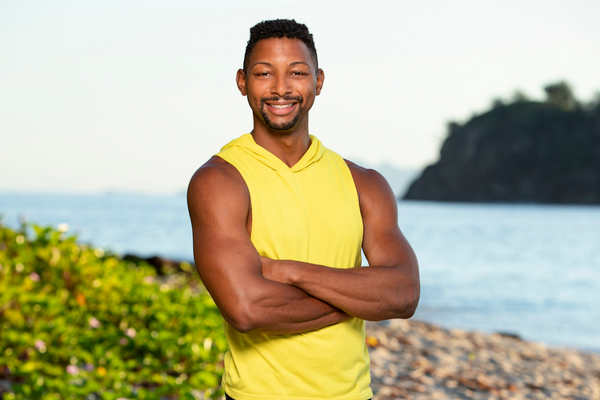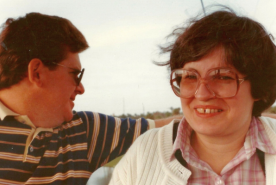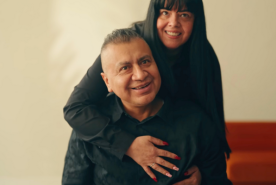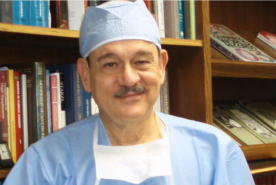March 06, 2023
Photo credit: Robert Voets/CBS
Have you ever heard of Prune Belly or Eagle-Barrett syndrome? Joshua Wilder was born with this rare genetic disease that affects his abdominal muscles, urinary tract system, and kidneys. Often a life-threatening condition, doctors weren't sure that Josh could survive. Despite the grim prognosis, Josh beat the odds and has grown into a thriving, kind adult who doesn't let anything stop him.
This is the story of a survivor who proves anything is possible.
Growing up with prune belly syndrome
Josh's doctors predicted he wouldn't survive past age five. Ignoring the odds, his parents were determined to give him the best chance at life. They put him on a low-protein diet, banned contact sports, and instructed his siblings to be gentle with him.
"I couldn't eat protein (like hamburgers, hot dogs, or milkshakes) because it was bad for my kidneys," said Josh. "I wasn't allowed to do a lot of physical activity because they were afraid my kidneys may get damaged. I couldn’t do what the other kids could. A piece of advice to parents is to be there for your kid and let them know that, yes, they're different, but there is still light at the end of the tunnel. They can still do things even if they can't be physically active."
When Josh was nine, his father began the transplant evaluation process to donate his kidney. That was until his family was alerted that a near-perfect kidney from a deceased donor was available.
"Back then, people on the waitlist got a pager, which my mom always carried. The pager went off in the middle of the night," said Josh. "A girl named Kristen tragically died in a car accident and her grandmother donated her organs to anyone that needed them. I had my transplant on September 10th, 1997. Everything happened so fast. One minute I was sleeping, and then I woke up with a kidney, a scar, and a new life which I dedicate to Kristen."
Whether you are looking for a kidney donor or considering becoming one, NKF can help. Sign up for the Kidney Learning Center to get started.
Life with a new kidney
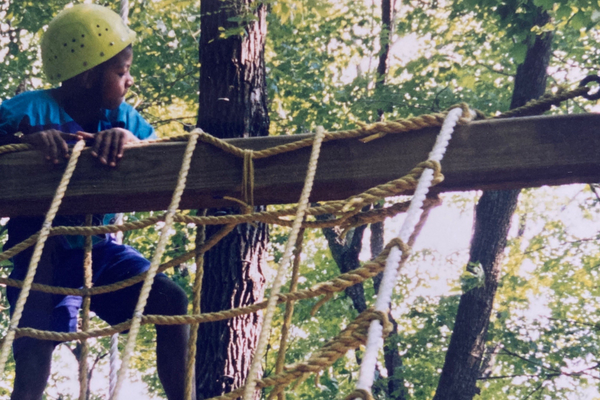
Josh had always wanted to eat a banana split but never could due to his diet restrictions. After waking up with a new kidney, that was his first meal: "Everything changed for me. I was able to eat what I wanted, do what I wanted, and be myself. It changed my world," said Josh.
A transplant changed Josh’s life and you can help more people get that chance. Donate now to help power more research, transplants, and hope.
Shortly after, Josh’s body tried to reject the kidney. He developed a large fluid mass in his abdomen but the hospital drained it, saved the kidney, and sent him home.
"I had to wear a mask because kids have a lot of bacteria and viruses. I had to adjust to taking medications every day and wear a kidney shield around my stomach, which definitely showed through my clothes," said Josh. "It made me different but I did feel a little special going back to school because everyone was really nice to me."
Josh healed and began attending a kidney camp at Ligonier, Pennsylvania, which he would attend until he turned eighteen. He accredits the camp for the confidence he has today.
"There was a climbing wall with four different sides ranging in difficulty. The first year, I cried when I couldn't do the easiest side. But I got better every year. The year I made it to the top was a huge accomplishment. It boosted my morale, personality, and confidence," said Josh. "I had the feeling that I could do anything even though I was told I couldn't. Seeing kids like me climbing and having these friends was huge. The camaraderie helped me grow and become the man I am today."
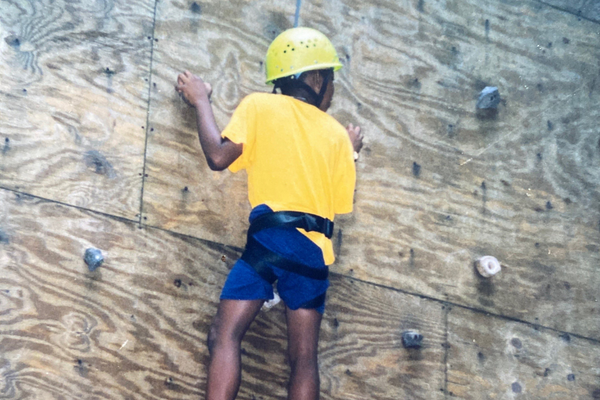
With that newfound confidence, Joshua went on to follow his dreams of becoming a doctor: "My amazing doctor changed my life. He had a great bedside manner and was always genuine. He talked to me like an adult, even at nine. It clicked–this is the kind of person and the job I want when I grow up."
During medical school, however, Josh began struggling to eat. With finals quickly approaching, he tried keeping the issue to himself. His mom noticed the odd behavior during spring break and insisted he see a doctor.
"I needed an endoscopy and a colonoscopy. My kidney was functioning fine but they noticed signet cell carcinoma in my stomach after a biopsy, which could become malignant," Josh said. "They also noticed a lymphoma mass, a collection of malfunctioning immunosuppressant cells in my GI tract, during the colonoscopy. On May 25th, 2013 my entire stomach and part of my colon was removed."
With help from good friends and plenty of resilience, Josh finished medical school and is now a practicing podiatrist. "Having that community and support system is very important because you can't do this alone."
Join NKF's Transplant Community now!
Anything is possible
During the 2020 COVID-19 lockdown, Josh decided to catch up on the newest episodes of Survivor, a reality show where contestants are left on an island to survive without the help of modern technology.
“I'd been watching Survivor with my mom since it came out. I always wanted to play, but I didn't think I could because of my condition. When I was watching in 2020, the host, Jeff, came on and said to apply. I’m in the best shape of my life so I took out my phone and did," said Josh. "I started talking about myself, why I like Survivor, and why I would be a great contestant. I was just myself, and I started getting calls and emails. At a certain point, I thought, "I really can get on this show!"
Josh's mom was understandably worried but excited, and his doctors begrudgingly agreed he could do the show.
"My nephrologist was concerned about my kidney and told me to stay hydrated and continue to take my medications during the show. My gastroenterologist was worried about me getting adequate nutrition since I don't have a stomach," said Josh. "She told me I needed to win challenges so I could eat and have enough energy to move forward. That is the advice I got from my healthcare providers but it's the game of Survivor so you have to do what you have to do. Regardless, they said I'm healthy and active enough to withstand all 26 days on the island if I were to go all the way."
With the green light from healthcare professionals, Josh started teaching himself how to make a fire, cut coconuts, and filet fish while rewatching old episodes for strategy.
"Just because you have these conditions doesn't mean that you can't do what other people can do,” Josh said.
Josh may have been ready for the technical and physical aspects of the show, but he wasn't fully prepared to be away from his husband.
"Leaving my husband was so tough. I wrote him a letter before leaving saying how much I love him and thanking him for the support heading up to me leaving for the show. Being away for so long and unable to pick up the phone or text him was really hard. There were a couple of moments out on the island where I was down because I just missed him. I wanted to talk to him and watch Survivor like we used to,” said Josh. “It was difficult, but it meant that much more coming back to see him and holding him again."
Now he is home with his husband, preparing to watch the show together like always.
"For those who are going through a chronic illness, cancer, or a transplant, you can do it. Keep on going," Josh said. "Life is going to throw you curveballs, but you just have to learn how to take it one minute or one second at a time. Know that there is a light at the end of the tunnel and that you can do it. You are a survivor."
Are you at risk of kidney disease? Take this one-minute quiz to find out. It may just save your life.
